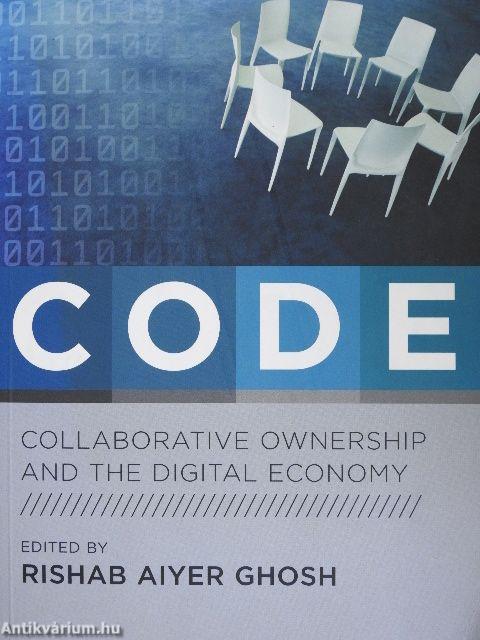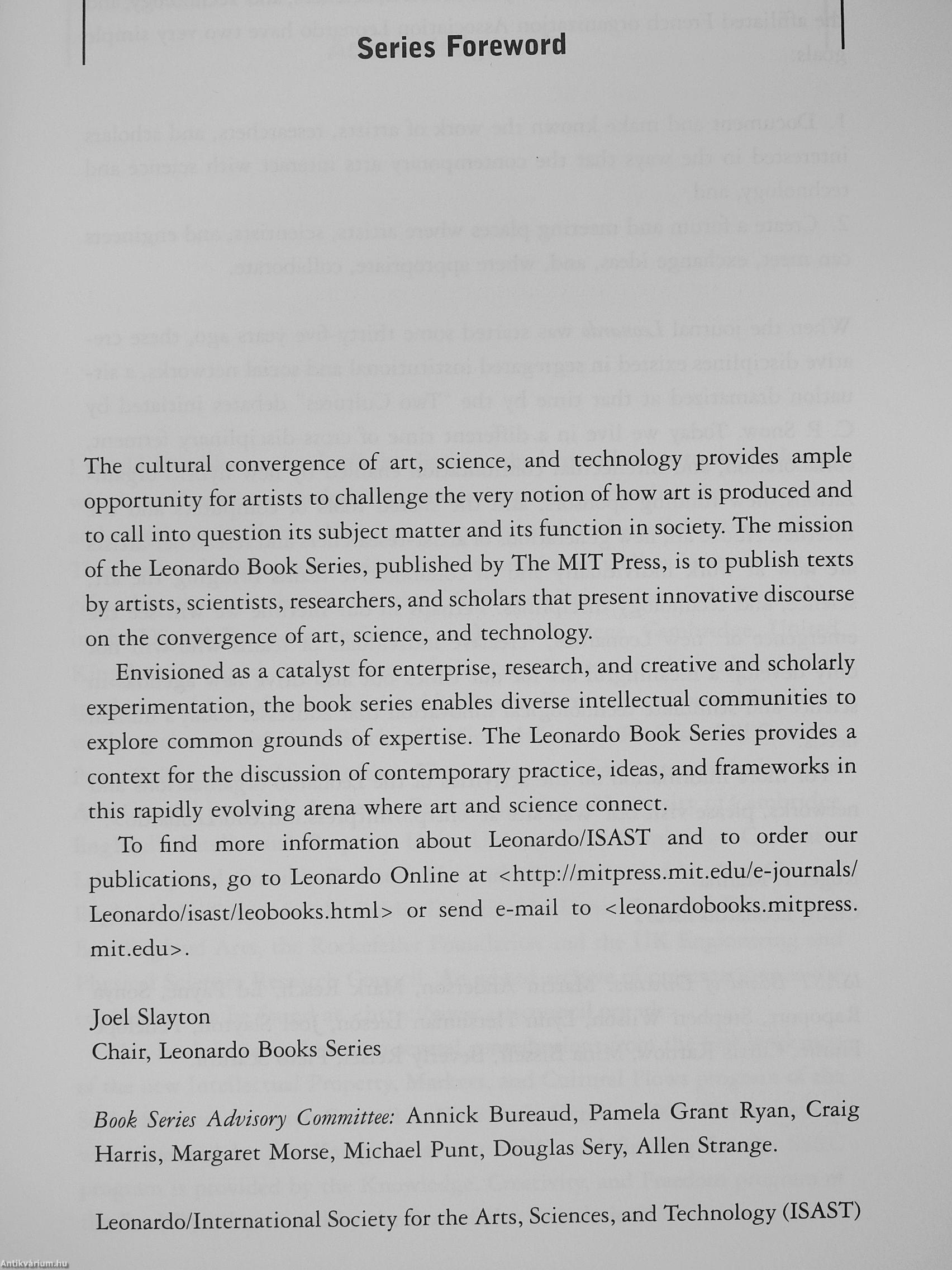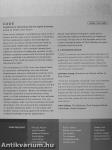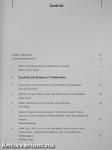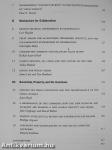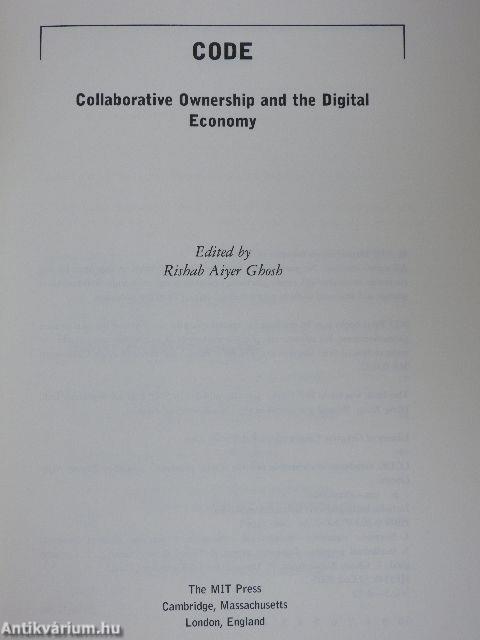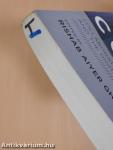1.103.913
kiadvánnyal nyújtjuk Magyarország legnagyobb antikvár könyv-kínálatát

VISSZA
A TETEJÉRE
JAVASLATOKÉszre-
vételek
CODE: Collaborative Ownership and the Digital Economy
| Kiadó: | The MIT Press |
|---|---|
| Kiadás helye: | Cambridge |
| Kiadás éve: | |
| Kötés típusa: | Ragasztott papírkötés |
| Oldalszám: | 345 oldal |
| Sorozatcím: | |
| Kötetszám: | |
| Nyelv: | Angol |
| Méret: | 22 cm x 17 cm |
| ISBN: | 0-262-07260-2 |
| Megjegyzés: | További kapcsolódó személyek a könyvben. |
naponta értesítjük a beérkező friss
kiadványokról
naponta értesítjük a beérkező friss
kiadványokról
Előszó
TovábbFülszöveg
1 I .1 . ' I'r 'i "
CODE
Collaborative Ownership and the Digital Economy
edited by Rishab Aiyer Ghosh
Open source software is considered by many to be a novelty and the open source movement a revolution. Yet the collaborative creation of knowledge has gone on for as long as humans have been able to communicate. CODE looks at the collaborative model of creativity—with examples ranging from collective ownership in indigenous societies to free software, academic science, and the human genome project—and finds it an alternative to proprietary frameworks for creativity based on strong intellectual property rights.
The contributors to CODE, from such diverse fields as economics, anthropology, law, and software development, examine collaborative creativity from a variety of perspectives, looking at new and old forms of creative collaboration and the mechanisms emerging to study them. Discussing the philosophically resonant issues of ownership, property, and the commons, they ask if... Tovább
Fülszöveg
1 I .1 . ' I'r 'i "
CODE
Collaborative Ownership and the Digital Economy
edited by Rishab Aiyer Ghosh
Open source software is considered by many to be a novelty and the open source movement a revolution. Yet the collaborative creation of knowledge has gone on for as long as humans have been able to communicate. CODE looks at the collaborative model of creativity—with examples ranging from collective ownership in indigenous societies to free software, academic science, and the human genome project—and finds it an alternative to proprietary frameworks for creativity based on strong intellectual property rights.
The contributors to CODE, from such diverse fields as economics, anthropology, law, and software development, examine collaborative creativity from a variety of perspectives, looking at new and old forms of creative collaboration and the mechanisms emerging to study them. Discussing the philosophically resonant issues of ownership, property, and the commons, they ask if the increasing application of the language of property rights to knowledge and creativity constitutes a second enclosure movement—or if the worldwide acclaim for free software signifies a renaissance of the commons. Two concluding chapters offer concrete possibilities for both alternatives, with one proposing the establishment of "positive intellectual rights" to information and another issuing a warning against the threats to networked knowledge posed by globalization.
( design / new media")
Rishab Aiyer Ghosh is Program Leader at the International Institute of Infonomics at Maastricht University. He was one of the founders and is the current managing editor of First Monday, the peer-reviewed Internet journal.
A LEONARDO BOOK
"CODE is a mature and sophisticated exploration of the most important issues related to creativity in the digital age. The broad mix of scholars, offering extraordinarily insightful perspectives, makes this collection essential for understanding this critically important set of questions."
Lawrence Lesslg, Stanford Law School, author of Free Culture
"Profound, thoughtful, pragmatic, and very readable, the articles range from historical perspective to practical advice, bringing fresh air to discussions around intellectual property and revealing how contingent are the 'norms' of today. They give answers and hope to those who sense that something is amiss with the system but are unsure about the alternatives "
John Sulston, The Wellcome Trust Sanger Institute, Cambridge, United Kingdom Vissza
Témakörök
- Idegennyelv > Idegennyelvű könyvek > Angol > Műszaki
- Műszaki > Informatika > Számítógép > Programozása
- Műszaki > Informatika > Számítógép > Alkalmazása
- Jogtudomány > Jogi ismeretek > Egyéb
- Idegennyelv > Idegennyelvű könyvek > Angol > Jogtudomány > Egyéb
- Műszaki > Idegennyelv > Angol
- Jogtudomány > Tanulmányok, értekezések, tankönyvek



